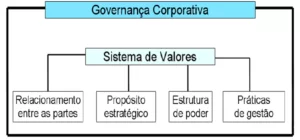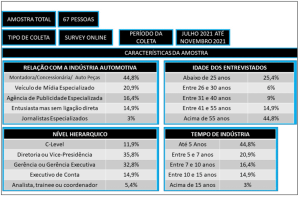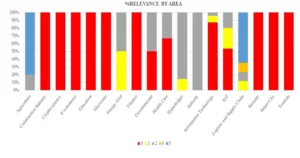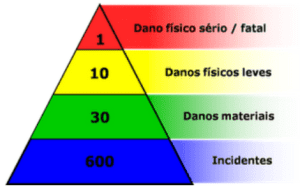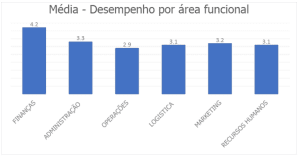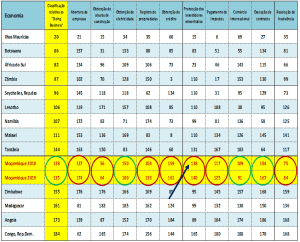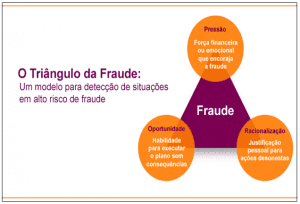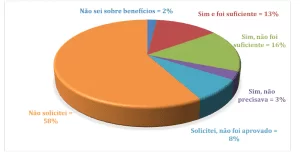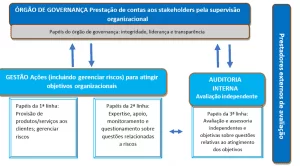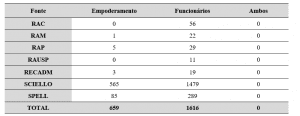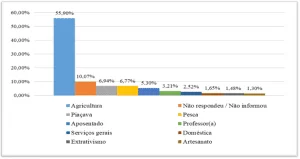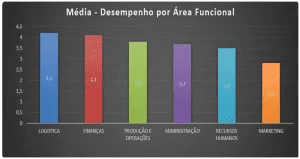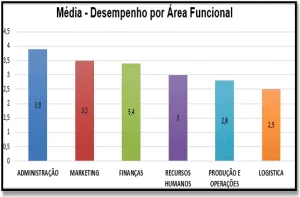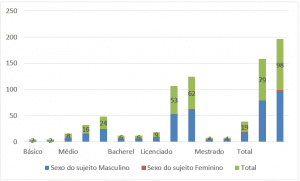ORIGINAL ARTICLE
SCHECHNER, Ylana Miller [1], NAVARRO, Ignacio Gallardo [2], LIMA-BAPTISTA, Erica Cindra de [3]
SCHECHNER, Ylana Miller. NAVARRO, Ignacio Gallardo. LIMA-BAPTISTA, Erica Cindra de. Organizational Learning in the performance of leaders: what inform the research. Revista Científica Multidisciplinar Núcleo do Conhecimento. 04 year, Ed. 08, Vol. 05, pp. 113-134. August 2019. ISSN: 2448-0959, Access link in: https://www.nucleodoconhecimento.com.br/business-administration/leadership-performance
SUMMARY
This review article provides the reader with a synthesis of the study produced, in the period from 2009 to 2019, on organizational learning in the performance of leaders. It is a theme that has been assuming an important role in organizations as a competitive advantage. As a complement, the relevance of learning to organizations that invest in evolution and change management is explained, tending to promote lessons that form the theories of action of individuals in organizations. This is an investigative work of qualitative, exploratory and descriptive nature whose data sources date back to scientific productions, published in the last 10 years, through the procedures for the search of the Integrative Literature Review (RIL), accessing databases, Cochrane Library, Portal Capes, VHL, Lilacs, Campbell Colaboration. The investigation followed articles published in specialized journals and in reports of new research. In each database, customary procedures were organized in review research, elucidating the inclusion and exclusion criteria. Altogether, about 300 texts were found in the format of articles, theses and dissertations. Of this set, 10 were included and critically analyzed, supporting the previously formulated hypotheses. Conceptual gaps and little scientific production were identified, which may compromise the choice of best practices based on scientific evidence regarding the effects/advantages of organizational learning on the performance of leaders.
Keywords: organizational learning, leadership performance, integrative literature review.
1. INTRODUCTION
Amid current pressures and demands, companies are called to answer questions that go beyond their routine responsibilities in the economic area due to the social, economic and environmental obstacles that fall under humanity( FRANKLIN, 2008; KREITLON, 2004; OLIVEIRA, 2008; SCHOMMER, 2009). In this context, one of the topics addressed is human capital management and organizational learning. More and more companies invest in human capital management and organizational learning to remain competitive in their area of expertise. In this sense, knowledge sharing and learning have been assuming an important role in organizations as a competitive advantage. (DAVENPORT & PRUSAK, 1998).
In knowledge institutions, people continue to expand the quality of achieving goals with the desired results, in which new ways of thinking are encouraged, and so people are continuously part of collective learning (SENGE, 1999). The organizations that learn have as differential the following activities: the solution of problems in a systematic way, the experimentation of new approaches; learning with individual experiences, together with other people’s practices and sharing knowledge, efficiently throughout the organization. Effectiveness in learning management occurs through the creation of systems and processes that integrate these activities (GARVIN, 2001). The institution that learns is the one that enables the resource of skills for creation, acquiring and sharing knowledge, being able to provide new behaviors that result in a reflection of new knowledge and ideas.
Companies are asked to create opportunities for knowledge sharing that presents itself as an important tool that directly interferes with the formation of their leaders. According to Robbins (2014), leadership is an ability to influence a group to achieve goals and objectives. Leaders have the possibility of natural emergence or by formal indication in the middle of a group. The author points out that a leader’s main skills are: intelligence, self-confidence, charisma, decision-making capacity, enthusiasm, courage and integrity.
Regarding the theme proposed in this study, Organizational learning in the performance of leaders, there are several theories about organizational learning, however, there is also a scarcity of empirical propositions of the relationship of the theme and leadership performance (Baker & Sinkula, 1999). However, the study of this theme has been expanding proportions in the organizational field, mainly due to the relevance of learning to organizations that invest in evolution and change management, tending to promote lessons that form the theories of action of individuals in organizations, being presented as a strategy for companies as well as a competitive advantage for companies. (KHANDEKAR & SHARMA, 2006; PIETRO & REVILLA, 2006).
Organizational learning can provide leverage in the performance of leaders, expanding their skills in team management resulting in a combination of life and work experiences. It is increasingly argued that the leader’s skills can be learned. Leadership is neither genetic nor deciphered in codes, an observable set of talents and capabilities that can be used where one is. And any talent can be strengthened, fed and galvanized if there is motivation and desire, along with the practice of feedback, action models and training.
Thus, the studies presented in this research become relevant because they will bring subsidies and indicators to human resources professionals focused on human and organizational development, leaders of organizations that work in various segments, consultants and teachers, who study, create, define and program organizational learning processes as a highlight in the development of leaders in companies.
2. THEORETICAL FRAMEWORK
The conceptualization of extracts in the literature review research modality does not present consensus regarding the use and equivalence with terminology. Although most research is generically labeled as systematic review, there is a specific type for each end-in-question survey. And, from the specificities, their results open new paths to theories and technical applications, such as the so-called Evidence-Based Practices (EPS), for example. Today it uses the Review Research in several institutions, such as in traffic, for example, in addition to school, corporate organizations and, admittedly, in several other environments. (BOTELHO, CUNHA & MACEDO, 2011).
In this investigation, the criterion developed from the Cochrane Center of Brazil was used, which subsidized the most recent studies produced by the Anima Study Group. (CUNHA & COLS, 2014)
The Systematic Review research stands out in the hierarchy of scientific evidence, indicating a higher degree of confidence and validity; brings the proposal to be able to involve several scientific studies; understands the idea of interdisciplinarity; and can be used by several areas besides medicine, its oldest and largest expression.
In the research of Review of Integrative Systematic Bibliographic Literature (RLBSI=RIL) there is a bibliometric performance, with exploratory, descriptive and qualitative characteristics. Given the so-called scientific evidence, for example, it focuses on primary systematic studies of source in electronic research preferably. In rsl, methodological subtypes such as Systematics, Meta-analysis, Qualitative Review and also Integrative (Cunha & Cols., 2014, p.1) are understood, which reveals the “state of art” of the theme under discussion.
RIL has amplitude in the search for results, but safeguards the specificities of what it collects. Among the Reviews allows the inclusion of experimental and non-experimental studies for a more complete understanding of the analyzed phenomenon. The nodal objective is to be faced with numerous complex proposals and to be able to produce a coherent, relevant and consistent scenario. This type of study combines data of a theoretical and empirical nature, also including various purposes: definition of concepts, review of theories and evidence, and analysis of methodological problems of a particular topic. (SOUZA, SILVA & CARVALHO, 2010).
There is in the production of RIL there is a sequence. The “definition of the question” is unique in its elaboration, since it provides direction for the execution of other activities correlated to the process, including the definition of participants, interventions for evaluation and the results to be observed. A review is planned to answer a specific question that uses methods to critically identify, select, and evaluate studies, and to collect and analyze data from these included studies. (ROTHER, 2007).
RIL identifies, analyzes and synthesizes research results, indicating the panorama and in the case of clinical aspects, the best care can be guided, with the presence of a critical spirit and not only protocol. (SOUZA, SILVA & CARVALHO, 2010)
This research aims to be based on studies of authors and researchers who investigate the theme from the perspectives of organizational learning, identifying its relationship with the performance of leaders in companies.
They research that elucidates the relationship between learning and organizational performance are developed by Baker & Sinkula, 1999; Cantalone, Cavusgil & Zhao, 2002; Rhee, Park & Lee, 2010) and Brazilians, Leopoldino & Loiola, 2010; Perin, Sampaio and Faleiro, 2004). In these studies, organizational learning and its influence on leadership performance can be measured through performance indicators, which are present in the various areas of the organizational environment. There is specialized literature that includes qualitative data from this structured management tool. Organizations should be directed by indicators, which contribute to control and monitoring, giving a treatment to the various elements of a company, among them the modeling related to human capital. (MACIEIRA, 2015).
New research notes the relevance of organizational learning, however, little is discussed and evidence of its benefits and influence on the performance of business leaders. So, how can learning practices, whether they be meetings, training and development, performance evaluation, coaching, among others, contribute to the performance of leaders?
Some complementary questions contribute to the reflection, which are: what is the relationship between organizational learning concepts and leadership performance?
3. MATERIALS AND METHODS
This is an exploratory, qualitative and descriptive study, making the use of methods of Integrative Literature Review (RIL), operationalized by electronic search means, at national and international levels. The Psycho Info, Cochrane Library, Portal Capes, VHL, Lilacs, Campbell Colaboration databases were accessed – with the focus of standardizing the search language, among the electronic databases, the health descriptors DeCS and Mesh were used. In this search process, the descriptors and free terms were written “Organizational Learning” and “Leadership Performance”, “Leadership Performance” and “Organizational Learning“.
The descriptors were used alone or combined together with the aid of boolean operators AND and OR, according to the specificities of each selected database, from November 2018 to January 2019.
The question that directs this research is: what do the research on Organizational Learning inform in the performance of leaders? And the complementary question is: what is the level of effectiveness of organizational learning in leadership performance?
The research medium considered the same path as the proposals for review research, which are: a) explanation of the problem to be sought; b) formulation of the essential research question; c) tracking in the possible databases; d) collection and analysis of the responses of the generated researches; e) discussion of the results obtained and, finally f) demonstration of the synthetic picture of the results of the Systematic Literature Review.
3.1 INCLUSION AND EXCLUSION CRITERIA: PROCEDURES
The RI obtained were analyzed according to the inclusion criteria. The titles and abstracts of articles were selected and analyzed, considered fit for inclusion in the Systematic Review, the one that obtained an affirmative answer in all three (03) questions:
- Does the content of the article address organizational learning research on leaders’ performance?
- Did the conclusive answers of the searches show the degree of effectiveness of organizational learning in leadership performance?
- Are the search results in accordance with the objectives expected by the researchers?
Studies that did not obtain a positive answer to the questions were excluded from the study, not corresponding to the interest of the previous question.
With the information collected and detailed taken from the articles analyzed, it was possible to organize the data to make the presentation in a manner, as presented below.
3.2 DATA COLLECTION AND ANALYSIS
In prime, each RIL was evaluated according to the titles, followed by a general reading of the abstract, suffering elimination when there was no framework for the determined search criteria.
The investigation took place in articles published in specialized journals and in recent research reports. In each database, customary procedures were organized in review research, elucidating the inclusion and exclusion criteria. Altogether, about 300 texts were found in the format of articles, theses and dissertations. Of this set, 10 were included and critically analyzed, supporting the previously formulated hypotheses.
The data were extracted from the Systematic Literature Review, considering the qualitative perspective, and arranged in the descriptive report format, according to the following table. For the protection of RIL data, tables were created with the following information: authors, year of publication, number of participants, results.
4. RESULTS AND DISCUSSION
Table 1- Result
| Authors | Search Type /Factors and Performance Variables/Objectives |
| Faustin, C. M. S. A. (2017) | Dissertation / identify the connection of the Leadership’s Coaching skills with the attitudinal and behavioral results of the employees, seeking to understand how the practice contributes to a better Affective Commitment and Performance of employees. |
| Santos, J. F. O. ( 2017) | Dissertation/ (a) investigate the processes of follow-up of change with the theoretical-conceptual framework on change leadership (see chapter 1); (b) to verify the analogy of the training process for change with the theoretical-conceptual reference on training evaluation (see chapter 2); (c) recognize the objectives of the workers targeted by the change on the involvement and support promoted by the modified leadership; (d) identify the perceptions of the workers targeted by the training for the change about their use in executing the changes that were requested; and (e) identify the proposals of these workers for a better conduct of change and the constitution of change in similar future situations. |
| Rauber, M. J. (2017). | Thesis, Socialization Coaching / objective to research the use of the advantages of Coaching as an instrument of personal development, using it as a strategy of welcoming and integrating in the level of socialization of current employees through an application methodology. |
| Pereira, B. C. B. (2016) | Dissertation / Identify entrepreneurial practices as a strategy to respond to organizational challenges related to project management. |
| Hörbe, T.A. N (2016) | Thesis/ examine the influence of organizational structure and leadership style on organizational learning |
| Lins, M. P. B.E. 2011 | Dissertation/ test a predictive model of leadership skills in the context of permanent work teams. |
| Gang Wang, Oh, I.-S., Courtright, S. H., & Colbert, A. E. (2011). | Article/ Analyze the association between transformational leadership and employee performance. |
| ADRIAN,G. S. P (2011) | Dissertation / invetsigar the influx of leadership in the development of contact center attendants in Brazil in 2010, from the perspective of the leaders – the attendants – in relation to their leaders – the case study supervisors. |
| Yuhee Jung & Norihiko Takeuchi (2010) | Article/ examine the interrelationships between senior management leadership, organizational culture and human resources (HR) practices, and their associative effects on organizational performance. |
| Rego, A. Pina, M e C. Clegg, S , 2010 | Article/ experience a predictive paradigm of leadership skills in the circumstances of permanent work teams |
| Muhammad Rafiq Awan, Khalid Mahmood, (2010) | Article/ explore the leadership style, organizational culture and commitment to work in pakistan’s university libraries and the relationships between them. |
Source: Author.
Assuming the relevance of organizational learning, the present study sought to analyze the impression dimensions of organizational learning in the development of leaders. Given the current reality, it is crucial that organizations are prepared to face change, and the need to strengthen their capabilities to respond to these changes arises. It is, in this sense, that there is an urgent need to develop the learning capacity of organizations, as this is the basic requirement for them to consolidate professional skills, teamwork or the establishment of democratic relations with leadership.
In this context and considering that the only means by which an organization can become an organization that learns and the performance of leaders, the need arose to conduct a bibliographic study to analyze the relationship between leadership and organizational learning. In this sense, an RIL was carried out verifying the pillars on which organizational learning is based, the leadership style, the level of learning performance, which will be presented below.
With regard to organizational learning and leadership performance, Rauber’s research (2017) aimed to explore the stability of coaching benefits as an instrument of personal performance, using it as a technique of reception and integration in the meeting stage in the socialization of new employees through an application methodology.
As a result of the thesis, socialization coaching was developed as an application guide for the HRM area in reception and integration programs, seeking through socialization, new collaborators. This research was designated as unprecedented, proposing an identification of the space in which coaching did not participate in the meeting phase of the socialization of new employees as an instrument of personal development – it was identified in bibliographical research and dialogues with HR managers. The thesis presents a literary review that points to the evolution of HRM and its essential trends, discussing socialization in levels, exploring coaching an intermediary for personal development and its demand in the organizational environment, thus finding the evidence that the application of Socialization Coaching is a new burden for the area.
The thesis also presents the links between the Coaching process and the HRM area, especially socialization in the meeting phase, which conceived the adaptation of tools to support Socialization Coaching such as the Work Wheel, the Work Goals Grid and the Ecology of Decision at Work. In this context, Socialization Coaching was categorized as a strategy of socialization distinct from character, and informal in terms of the environment; individualized non-sequential and mutant in terms of capacity; and in relation to social aspects, it is an individualized disjunctive technique and a legitimate tactic of investment. (JONES, 1986).
Along with the development and execution of Socialization Coaching is the understanding that the HRM area should encourage new employees to develop the active role in their socialization since entering the organization. Thus, with the use of Socialization Coaching it is encouraged that new employees be welcomed, integrated and socialized, and also welcome, integrated and socialized.
In this cotext of coaching, leadership and organizational learning Adrian (2011) analyzed the intervention of leadership in the performance of contact center attendants in Brazil in 2010, under the view of the attendants, as to their leaders, supervisors, from a case study in a leading organization of this market, with approximately ninety thousand employees, this being the second largest private employer in Brazil.
Thus, the theoretical foundation was made for the understanding of leadership, performance and the relationship between leadership and institutions, as well as the particularization of Contact Centers, seeking to discuss the essential means of managing people focused on performance and influencing factors, in addition to leadership, individual and group results.
The conceptual research model proposed the characterization and identification of leadership from the election of certain theoretical treatments, which are: leadership styles, contingency approach and new leadership approach; characterization of performance with objective in management and personality, possible influencers of performance; and, finally, understand the performance of leadership in individual performance in the elected organization.
The set of results of the survey conducted with 270 attendants indicated that in relation to leadership, democracy is the dominant among supervisors, with the influence of the contingency approach and participatory leadership model. Regarding performance, it is noted that this organization maintains a high level of control and monitoring over employee responses, with performance evaluation methods that assist process feedback and constant improvement. Moreover, 76.5% of respondents believe that the organization makes new employees feel they belong to it, which contributes positively to the feeling of belonging and increased productivity. Finally, the results indicated a strong link of importance of the leader’s performance, with the individual result and performance of contax attendants, with 83.7% of correspondents agreeing with this statement, and 73.3% indicate that the leader’s performance as one of the three main factors of production with higher performance levels.
The work is finalized with the presentation of the results achieved, together with conclusions and suggestions for the production of studies involving the contents and the Contact Centers sector, conceptualizing the size of this market and its importance for the generation of jobs in the country.
Also in relation to coaching and leadership skills, Faustin’s research (2017) aimed to identify the association of the Leader’s Coaching skills with the attitude and behavior responses of employees, seeking to understand how the practice contributes to the improvement of the Affective Commitment and Performance of employees and analyzing the relationship between the Affective Commitment of subordinates and their Individual Performance. For the author, in the current economic and social context, organizations must adopt new techniques and tactics that allow the achievement of high performance, in order to persist in the competitive market and determine its competitiveness.
Human capital receives its prominence in the current scenario, taking individual competencies as fundamental, seeking innovations in the field of people management, aiming at professional and personal development, thus achieving the desired performance to achieve the organizational objectives to which they propose.
The Leader who has coaching skills is able to modulate behaviors and attitudes, as well as allows the creation of a high degree of commitment and trust, enhancing and inspiring his followers, promoting team dynamics and great performance. Coaching becomes an instrument that promotes the development of employees’ skills. This study was conducted in the form of a questionnaire, with 141 employees belonging to different institutions.
Based on the ideas about their leaders, a study on attitudinal and behavioral responses of the respondents was proposed. The results showed that the Leader’s Coaching Skills justify 14% of affective commitment, 5% of performance and as well as the fact that Affective Commitment clarifies approximately 15% of the Individual. The results are represent the population, but allow us to consider that Leadership Coaching Skills obtains an important role in the attitudinal and behavioral responses of employees, contributing to the sustainable development of the organization. Coaching is considered an emerging practice fundamental for change in organizations, obtaining recognition by them as their potential.
The study by Rego, A. Pina, M and C. Clegg, S, (2010), aimed to evaluate and test a prognostic model of leadership skills according to the context of fixed work teams. Leadership was defined as the process of ethical interaction between the manager and the team, seeking to achieve common goals. In this process, there is the differentiation of the manager between the formal role and the head of specialties before the team. The aspect was defined as the leadership competencies, measured from the self-assessment of managers and their work teams, which is a heteroevaluation.
The previous variables were in the form of training hours and the use of learning tactics at work. The moderating effect of motivation for learning was tested with 377 managers from three organs of the Federal Public Administration and 692 members of work teams. The results were collected using calculation scales and were submitted to factor analysis for psychometric validation, and single or multiple regressions were performed to test the proposed hypotheses.
In the system of self-assessment of competencies, four different learning strategies (search for interpersonal help, practical application, intrinsic and extrinsic reflection, search for help in written material) were elected for leadership skills, but there was no predictive relationship between training time and the reputable variable. In the system of heteroevaluation of competencies, only training time and the tactic of seeking interpersonal help were predictors for leadership practices. The hypotheses related to the moderating effect of motivation for learning were rejected, and the benefits of the study for management development policies were discussed, as well as the limitations of research and an agenda for further studies.
With the purpose of examining the influence of organizational structure and leadership style in organizational learning, Hörbe (2016) elaborated a descriptive research, quantitative and qualitative nature, carried out through a case study in an automobile sector company, winner of the National Quality Award, in 2015. In the quantitative phase, about 50 employees belonging to various hierarchical positions of the Construction Equipment Unit of the company mentioned participated, who received a questionnaire of the following models: Organizational Learning Scale, developed by Goh and Richard (1997) and validated in Brazil, by Angelim and Guimarães (2003), Organizational Structure Scale, used by Gaspary (2014), based on the studies by Hage and Aiken (1967) and Nahm et al. (2003) and Management Style Assessment Scale developed by Melo (2004).
The qualitative stage supported the analysis of company documents and structured interviews with four managers of the Construction Equipment Unit of the company in question, with a protocol developed according to the models mentioned. The quantitative results were examined by descriptive statistical, T-test and ANOVA to test mean difference, Cronbach’s Alpha for reliability, Person Correlation and Regression Analysis. The Organizational Structure obtained research results that demonstrated that the organization has a matrix and decentralized structure, with formalization and integration of high levels.
The leadership style is focused on relationship and situational in a predominant way, which indicates that the leaders act with a focus on interpersonal relationships, and their performance is distinguished according to the employee’s profile. Organizational Learning obtained results that showed that the company’s management practices are focused, in particular, on providing employees with Clarity of Purpose and Organizational Mission, as well as a culture of encouraging experimentation and new ideas, practices that reflect on the involvement and commitment of employees to successful organizational results.
The multiple return analyses presented two valid systems: a) the presence of the centralization-decision-making variable, which exerts explanatory force in Factor 02 of Organizational Learning and Leadership Incentive from the perspective of inclusion in decision-making and problem solving in the team; b) the presence of the variables Integration-Communication and Situational Leadership Style, which exert a force of justification for clarity of purpose and mission. Thus, it is perceived that the Organizational Structure and leadership style practice a strong influence on Organizational Learning, collaborating with indicators for the organizational learning literature and its previous reasons, as well as with collaborations for the managerial attitudes of organizations that intend to grow in their goals, in addition to the maturity of management through Organizational Learning. This research was developed with the purpose of examining the influence of organizational structure and leadership style on organizational learning.
In the research carried out by Pereira (2016), Strategic People Management is pointed out as one of the great differentials that indicate the ability to adapt to the market, as well as the competitive benefit. The author defends the stages of the execution of the method, in which it is categorically available in Strategic Management as a Competitive Differential; Individual Skills; Training and People Development; Coaching and Mentoring and finally the Human Development Assessment.
Yuhee Jung & Norihiko Takeuchi (2010) conducted a study that aimed to examine the interrelationships between senior management leadership, organizational culture and human resources (HR) practices, and their associative effects on organizational performance. Based on the theory of organizational learning, they developed and tested two different causal models: (1) an advanced learning flow model, in which the support leadership of senior management would create a community culture and HR practices within organizations; and (2) a feedback learning flow model, in which the community would support leadership practice by high-level management and HR practices within a company. The structural equation modeling (SEM) results for a sample of 225 Japanese small and medium-sized enterprises in Japan supported the second model, in which the predominance of a community culture within the company is a antecedent of the support leadership of senior management. This, in turn, requires a performance-based evaluation practice and eventually leads to better organizational performance in terms of objective indicators of turnover and absenteeism rates and workforce productivity. The findings were used to discuss the role of senior management leadership in a given organizational culture from the point of view of organizational learning. Limitations and guidelines for future research were also discussed.
The authors Gang, Courtright & Colbert (2011) report that although transformational leadership has been extensively studied, the magnitude of the relationship between transformational leadership and follower performance in the types of criteria and levels of analysis remains uncertain. Based on 117 independent samples from 113 primary studies, the current meta-analytical study showed that transformational leadership was positively related to the performance of the individual level of follower among the types of criteria, with a stronger relationship for contextual performance than for task performance in most study environments. In addition, transformational leadership was positively related to performance at the team and organization levels. Meta-analytical regression and relatively important analyses consistently showed that transformational leadership resulted in an increase in transactional leadership (contingent reward) in predicting contextual performance at the individual level and performance at the team level. Contrary to our expectation, however, no effect of increased transformational leadership on contingent reward was found in predicting task performance at the individual level. Instead, the contingent reward explained the incremental variation in task performance at the individual level beyond that explained by transformational leadership.
As for leadership style, organizational culture and commitment to work Muhammad Rafiq Awan, Khalid Mahmood, (2010) conducted a study in university libraries that aimed to explore leadership style, organizational culture and commitment to work in Pakistan’s university libraries and their relationships. A structured questionnaire developed and self-administered to 115 professional librarians was used. The hypotheses were tested using pearson’s chi-square t-test and ANOVA. Results – The results show that library professionals were not very sensitive about any relationship between these three variables in their workplace. Most professionals realized that their principal librarians had an absolute leadership style and libraries inclined to adopt a bureaucratic and fulfilling culture. Most library professionals seemed to be highly committed to their organizations. This means that they favored the results-oriented culture. The research was limited to university libraries in Punjab Province, Pakistan, and the federal capital, Islamabad. Originality / value – The study is useful for understanding leadership style, organizational culture and commitment to working in university libraries.
5. CONCLUSION
This research was developed with the objective of offering the reader a synthesis of the knowledge produced, in the period 2009 to 2019 on organizational learning in the performance of leaders. The central objective of the research was established through the Integrative Literature Review (RIL), which addresses organizational learning in the performance of leaders as a topic.
Despite the answers found to the question of this investigation, its nature of previous conjecture stands out, aiming at the cutout determined in this article, which limited the demonstration of 10 papers, including articles, dissertations and theses. In moreover, the identified patterns that do not appear to dialogue with each other are attached. The determination of variables appears at different levels in different investigations, which does not facilitate the effort of the projection of the dialogue. A better developed answer to the second research question of this article depends on greater vigor in bibliographic survey, including works developed from different research methods at another time to verify whether other research esevers with this theme were produced.
The lack of extensive work on organizational performance and organizational learning contributed so that the dimension of time was not properly explored as a whole, thus constituting a gap in investigations in the area, since it was not established the impression in time or the sustainability of advances in leadership performance, caused by the adherence of processes and practices of organizational learning.
Moreover, due to ignorance, there is an inconsistency of people development programs addressed to managers and employees. Supposedly, there is a lack of targeted research to answer critical questions that actually generate practices based on scientific evidence.
Despite these limitations, it is thought, however, that the results obtained and the conclusions reached with this investigation may constitute a valuable contribution in enabling us to understand the problem of the relationship between organizational learning and leadership.
A suggestion for future research is the application of this research, after a period of time, in order to confirm whether the organization under study has evolved towards approaching a high level of organizational learning performance. Another suggestion is the realization of this investigation through direct observation, which would allow a more detailed study to analyze which variables contribute to the differences observed.
REFERENCES
BAKER, Willian; SINKULA, James. The synergetic effect of market orientation and learning orientation on organizational performance. Journal of the Academy of Marketing Science, v.27, n.4, p.411-427, 1999.
BOTELHO, Louise de Lira Roedel ; CUNHA,Cristiano Castro de Almeida . O método da revisão integrativa nos estudos organizacionais. Gestão e Sociedade.· Belo Horizonte,v.5, n. 11, p. 121-136 · maio-ago. 2011 ISSN 1980-5756. Disponível em:<http://www.gestaoesociedade.org/gestaoesociedade/article/view/1220/906>. Acessado em: 05/01/2019.
CANTALONE, Roger; CAVUSGIL, Tamer; ZHAO, Yushan . Learning orientation, firm innovation apability, and firm performance. Industrial Marketing Management, v.31, n.6, p.515-524, 2002.
CUNHA, Cláudia. (COORD.) (2014). Manual de revisão bibliográfica sistemática integrativa: A pesquisa baseada em evidências. Grupo Ânima de Educação. Belo Horizonte, MG: Ed. Grupo Ânima. disciplinas. Disponível em: <nucleoead.com.br/pdf/anima_tcc/gerais/mauais/manual_revisao.pdf.>.
DAVENPORT, Thomas; PRUSAK, Laurence. Conhecimento empresarial: como as organizações gerenciam o seu capital intelectual. 4. ed. Tradução de Lenke Peres. Rio de Janeiro: Campus, 1998. 237 p.
FAUSTIN, Catarina Mafalda dos Santos. A influência das competências de coaching do líder no empenhamento afetivo e desempenho dos colaboradores. Dissertação Mestrado em Gestão Leiria. Escola Superior de Tecnologia e Gestão do Instituto Politécnico de Leiria, 2017.
FRANKLIN, Daniel, D. Corporate social responsibility. The Economist. Recuperado em 22 janeiro, 2008. Disponível em: <http://www.economist.com/specialreports/displ aystory.cfm?story_id=10491077>.
Gil, M. (2005). Panorama da deficiência no Brasil. São Paulo: Rede Saci. Recuperado em 30 janeiro, 2005, de http://www.saci.org.br Grupo de Referência e Apoio à Cidadania Empresarial. (2005). A integração de pessoas com deficiência no mercado de trabalho: como actuar, Lisboa.
GANG Wang; OH, In.-Sue; COURTRIGHT, Stephen. & COLBERT, Amy. (2011). Transformational Leadership and Performance Across Criteria and Levels: A Meta-Analytic Review of 25 Years of Research. Group & Organization Management, 36(2), 223–270. Disponível em: <https://doi.org/10.1177/1059601111401017>.
GARVIN, David. Construindo a organização que aprende. Gestão do conhecimento. Harvard Business Review. Rio de Janeiro: Campus, 2001
HÖRBE, Tatiane de Andrade Neves. Aprendizagem organizacional, estrutura organizacional e estilo de liderança: o caso de uma empresa ganhadora do prêmio nacional da qualidade – PNQ Dissertação (Mestrado em Administração) – Universidade Federal de Santa Maria, Santa Maria, 2016. Disponível em: <http://repositorio.ufsm.br>.
OLIVEIRA, José Puppim (2008). Empresas na sociedade: sustentabilidade e responsabilidade social. Rio de Janeiro: Elsevier
JUNG, Yuhee & TAKEUCHI, Norihiko. Performance implications for the relationships among top management leadership, organizational culture, and appraisal practice: testing two theory-based models of organizational learning theory in Japan. The International Journal of Human Resource Management, 21:11,1931-1950, DOI: 10.1080/09585192.2010.505093, 2010.
KHANDEKAR, Aradhana; SHARMA, Anuradha (2006) “Aprendizagem e desempenho organizacional”, Educação + Formação , vol. 48 No. 8/9, pp. 682-692
KREITLON, Maria Priscilla. (2004). A ética nas relações entre empresas e sociedade: fundamentos teóricos da, responsabilidade social empresarial. Anais do Encontro Anual da Associação Nacional de Pós-graduação e Pesquisa em Administração, Curitiba, PR, Brasil, 28.
LEOPOLDINO, Cláudio Bezerra; LOIOLA, Elizabeth. Desempenho organizacional e aprendizagem organizacional: o que podemos aprender sobre essa relação? In XXXIV Anais do Encontro Nacional da Associação Nacional de Pós-Graduação e Pesquisa em Administração, Rio de Janeiro, RJ, Brasil, 2010.
LINS, Maria Paula Beatriz Estellita. Predição de competências de liderança a partir do uso de estratégias de aprendizagem, horas de treinamento e motivação para aprender. Universidade de Brasília Instituto de Psicologia Programa de Pós-graduação em Psicologia Social, do Trabalho e das Organizações Mestrado Lins, M. P. B.E., D.F, 2011.
LOIOLA, Elizabeth; BASTOS, Antonio Virgilio Bittencourt . A Produção Acadêmica sobre Aprendizagem Organizacional no Brasil RAC, v. 7, n. 3, Jul./Set. 2003.
MUHAMMAD, Rafiq Awan ; MAHMOOD, Khalid . ” among leadership style, organizational culture and employee commitment in university libraries, Library Management, Vol. 31 Issue: 4/5, pp.253-266, 2010. Disponível em: <http://doi.org/10.1108/01435121011046326>.
PEREIRA, B. C. B. Empreendedorismo: habilidade para indivíduos e prática para organizações. Dissertação apresentada ao Programa de Pós-Graduação Stricto Sensu em Gestão do Conhecimento e Tecnologia da Informação da Universidade Católica de Brasília, como requisito parcial para obtenção do Título de Mestre em Gestão do Conhecimento e Tecnologia da Informação. Brasília – DF 2016.
PERIN, Marcelo Gattermann; SAMPAIO, Cláudio Hoffmann; FALEIRO, Sandro Nero. O impacto da orientação para o mercado e da orientação para aprendizagem sobre a inovação de produto: uma comparação entre a indústria eletroeletrônica e o setor de ensino universitário de administração. Revista de Administração Contemporânea, v.8, n.1, p.79-103, 2004.
PIEDADE, Adrian Guido Silva A influência da liderança no desempenho de atendentes em Contact Centers: o Caso Contax S/A. Dissertação aprovada como requisito parcial para obtenção do grau de Mestre Profissional em Administração. Universidade Federal da Bahia – UFBA, 2011.
RAUBER, Moacir Jorge. Coaching de Socialização: uma nova aplicação para o coaching como ferramenta de desenvolvimento pessoal. Tese de doutoramento em Ciências Empresariais, Escola de Economia e Gestão. Braga: Universidade do Minho, 2017.
REGO, Arménio CUNHA, Miguel Pina e CLEGG, Stewart Liderança Global Virtuosa. Revista de Psicologia, Fortaleza, v. 1 n. 1, p. 9-32, jan./jun. 2010.
RHEE, Jaehoon.; PARK, Taekyung.; LEE, Do Hyung. Drivers of innovativeness and performance for innovative SMEs in South Korea: mediation of learning orientation. Technovation, v.30. n.1, p.65-75, 2010.
ROBBINS, Stepen, P . A nova administração. 1º Edição. São Paulo: Saraiva,2014.
ROTHER, E. T. (2007). Revisão sistemática X Revisão narrativa. Acta Paulista de Enfermagem, 20(2), v-vi.
SANTOS, Joana Fonseca de Oliveira. A formação como instrumento da mudança: a caso Crowne Plaza Porto em processo de rebranding. Trabalho Final de Mestrado apresentado à Universidade Católica Portuguesa para obtenção do grau de Mestre em Gestão de Recursos Humanos. Universidade Católica Portuguesa, Porto, 2017.
SCHOMMER, Paula Chies (2009). Responsabilidade socioambiental. MBA Executivo em Gestão e Negócios do Desenvolvimento Regional Sustentável. Brasília: Universidade Corporativa Banco do Brasil; Universidade Corporativa CAIXA.
SENGE, Peter. A quinta disciplina. 10 ed. São Paulo: Editora Best Seller, 1999.
SILVA, Alexsandra Lessa.; CRAVO, Julian Ribeiro.; TEIXEIRA, Tatiani Fernandes. A gestão estratégica de pessoas como fator principal de desenvolvimento humano e empresarial: estudo de caso da empresa Áurea Alimentos. Revista Maiêutica, Indaial, v. 4, n. 1, p. 111-120, 2016.
SOUZA, Marcela Tavares, DA SILVA, Michelly Dias, & DE CARVALHO, Rachel. (2010). Revisão integrativa: o que é e como fazer. Einstein (São Paulo), 8, 102-106.
[1] PhD student in Education, Universidad SEK – Chile, Master in Business Administration from IBMEC (2009), with Postgraduate degree in Marketing from IBMEC (2006) and Postgraduate in Human Resources Management from FABES (1995). Graduated in Pedagogy from UERJ (1988) and Business Administration from Universidade Cândido Mendes (1992).
[2] PhD in Psychology – University of Chile. Specialist in Sports Psychology at Diego Portales University – University Islas Baleares, Chile Spain (double degree).
[3] PhD in Social Psychology – State University of Rio de Janeiro UERJ.
Submitted: July, 2019.
Approved: August, 2019.

